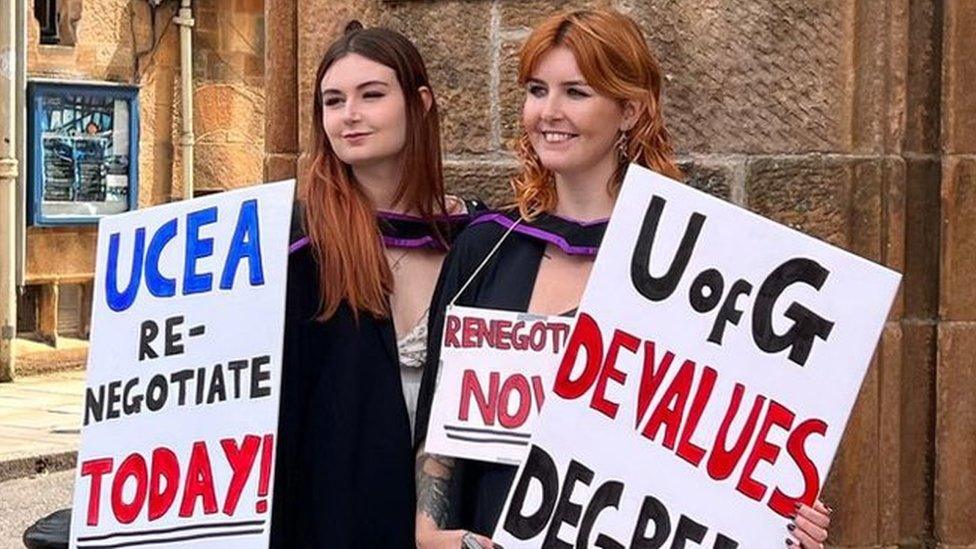University staff in freshers' week strikes
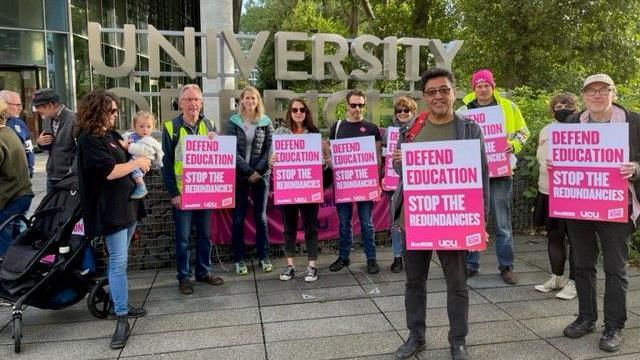
Staff say about 60 people took part in the strikes
At a glance
University of Brighton staff are striking over job cuts, including 22 compulsory redundancies
Students continue to occupy a university building and some staff who participated in the marking boycott are still not being paid
The "overwhelming majority" of students would not be affected by industrial action, the university said
- Published
Staff at the University of Brighton are striking over job cuts on the first day of freshers week.
The university said the "overwhelming majority" of students would be unaffected by industrial action.
The university has cut more than 100 jobs, 22 of which are compulsory redundancies.
Meanwhile, a group of students continue to occupy a university building and some academic staff remain unpaid over a national marking boycott.
Mark Abel, chair of Brighton's University College Union branch, said the redundancies would "cause irreparable damage to the quality of the education that we're able to offer our students".
The university said changes to its workforce would help create "significant opportunities" to strengthen its position in the future.
New students told the BBC the strikes were "disconcerting" and "confusing" on their first day at university.
A spokesperson for the university said: “We acknowledge that a small number of staff at the university continue to be vocal on a range of issues and may choose to take strike action as part of this latest dispute."
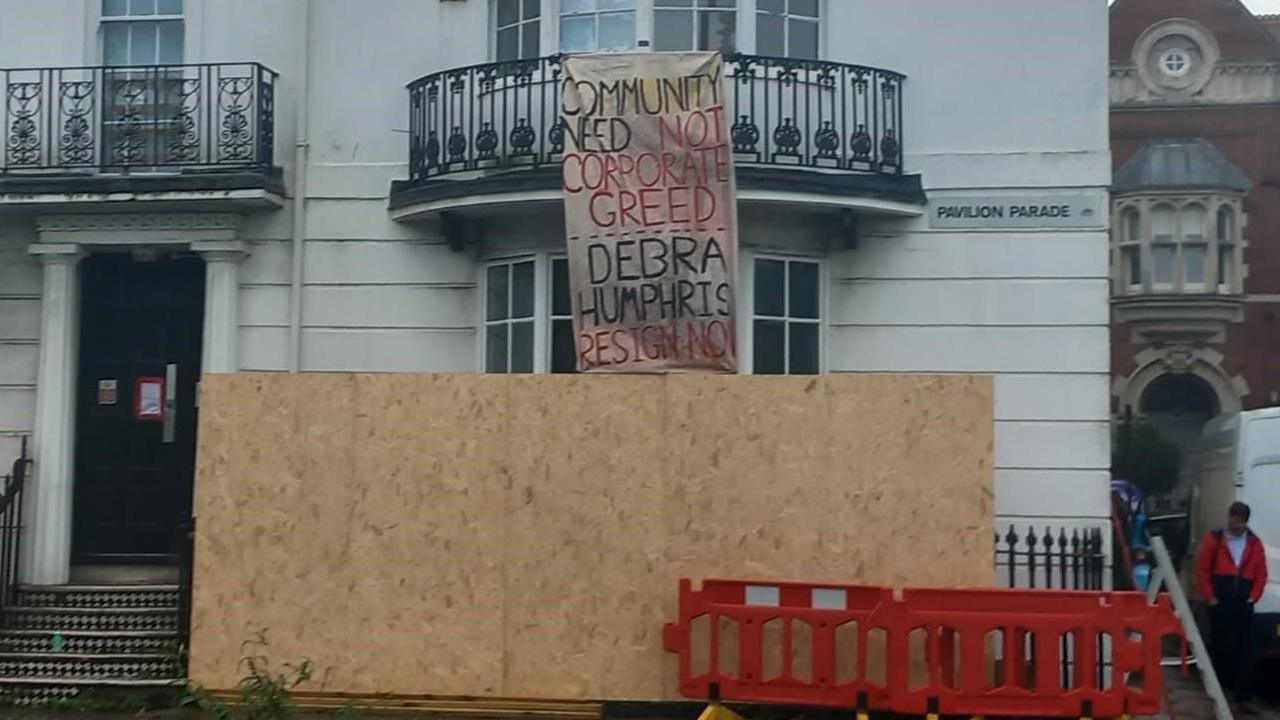
The university has boarded up the entrance to a building occupied by students
Students occupying a University of Brighton building in Pavilion Parade said they were suffering a Covid outbreak and "relentless aggression from university security".
The university has been approached for comment but said last week that it was seeking "to engage with the group constructively and with a focus on ensuring their safety and wellbeing”.
Meanwhile, some Brighton lecturers who took part in the national University College Union marking boycott, which was called off on 6 September, are still not being paid.
The university claimed this was because the number of days of industrial action exceeded the number days that pay had been withheld, so staff had effectively been overpaid.
One lecturer told the BBC that aside from not marking about 20 hours worth of papers, she had been working full-time since May and did not believe she owed "a penny".
She said not being paid for four months had been "extremely tough", "very stressful" and "psychologically distressing".
The University of Brighton said: "The position we have taken with regards to salary deductions demonstrates that we will continue to do everything in our power to protect our students from the impacts of industrial action."
Nearby Sussex University has now called off strikes planned for this week after reaching an agreement with management.
The University College Union branch at Sussex said it would continue to push to improve pay and working conditions both locally and nationally.
Follow BBC South East on Facebook, external, on X, external, and on Instagram, external. Send your story ideas to southeasttoday@bbc.co.uk, external.
Related topics
- Published7 July 2023
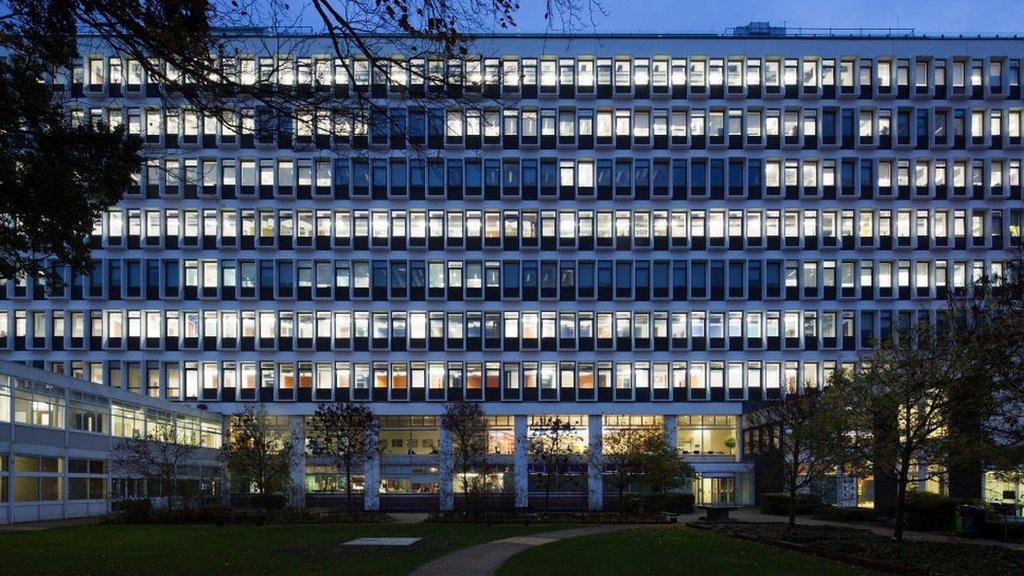
- Published20 October 2023
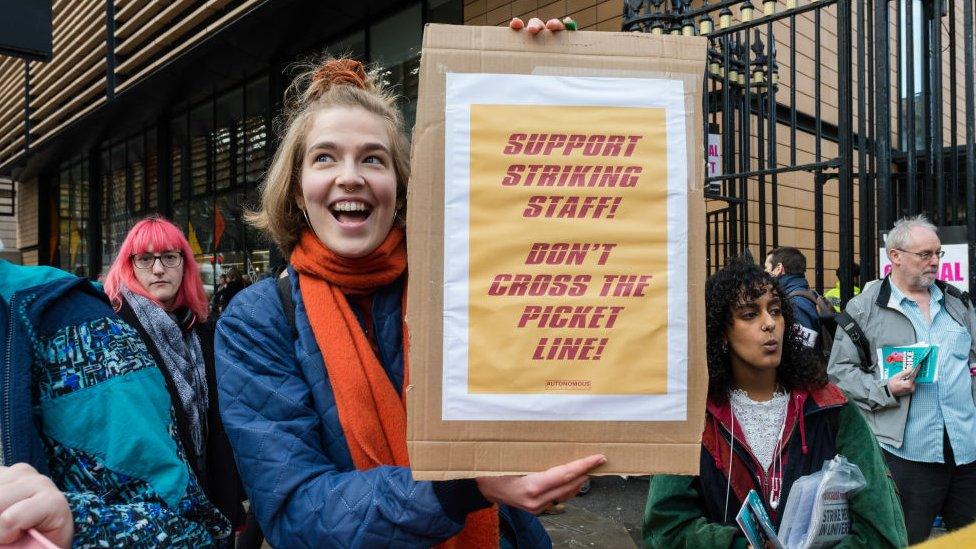
- Published25 September 2023
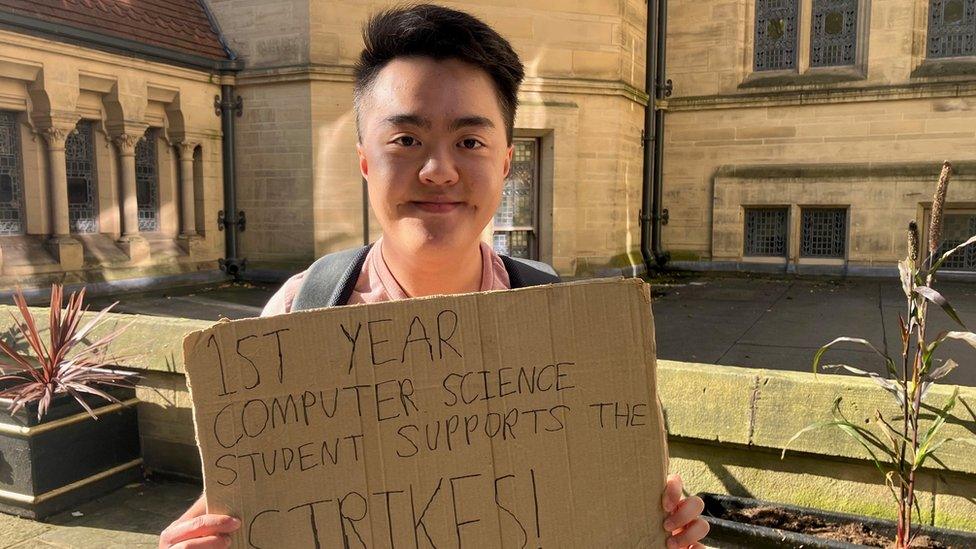
- Published13 August 2023
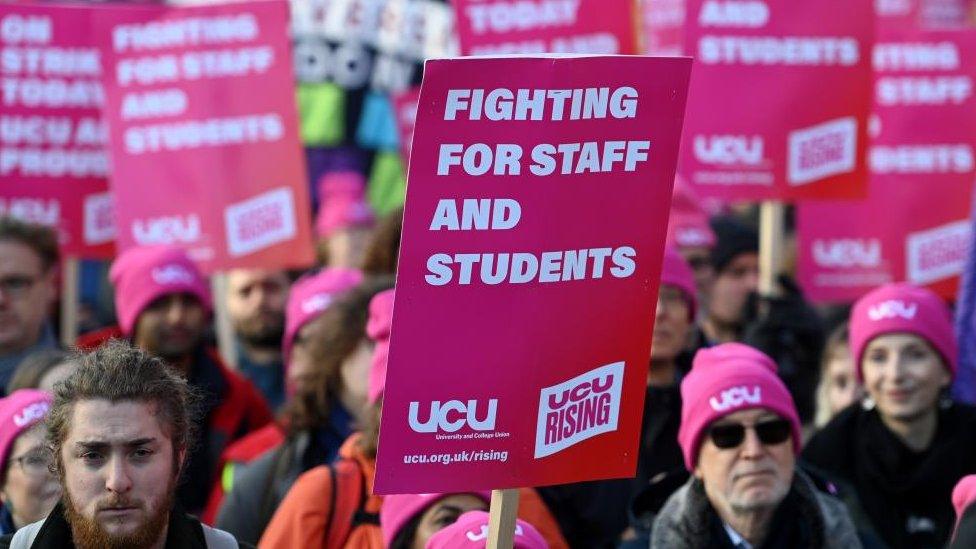
- Published23 June 2023
